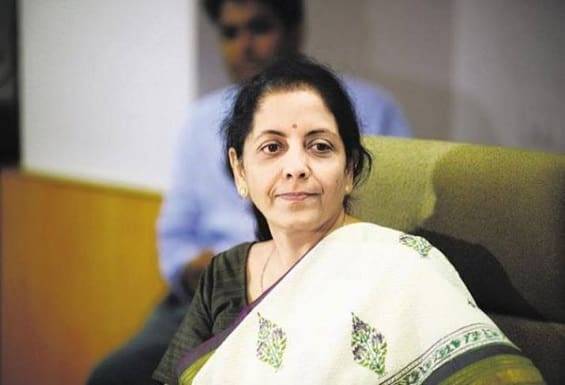FM Sitharaman said reform is a continuous process for the government and it tops the agenda.
Clearing the air around slowing economy, Finance Minister Nirmala Sitharaman today said despite weak global demand, Indian economy was growing faster than the global average and all other major economies.
“India’s GDP continues to grow at a faster pace than the global economy and any other major economy, “the Finance Minister said. Addressing a press meet, she said reform is a continuous process for the government and it tops the agenda.
Here are the key takeaways from the FM’s presser:
Rs 70,000-crore capital into public sector banks.
The FM announced upfront capital infusion of Rs 70,000 crore into public sector banks, a move aimed at boosting lending and improving liquidity situation.
The move is expected to generate an additional lending and liquidity in the financial system to the tune of Rs 5 lakh crore, she said at a press conference.
Foreign portfolio investors.
Giving in to the demands of overseas investors, Finance Minister Nirmala Sitharaman on Friday announced rollback of enhanced surcharge on foreign portfolio investors levied in the Budget. Surcharge on long and short term capital gains arising from transfer of equity shares has been withdrawn, she said.
Data showed FPIs have pulled out Rs 23,000 crore from domestic equities in July and August, as the Budget proposal to levy a surcharge on higher tax-income groups affected 40 per cent of FPIs, operating as trusts or AoPs, and made investment in Indian equities unattractive.
Auto sector
BS IV vehicles bought before 31st March 2020 will remain operational for their full period of registration. Further, the FM also deferred the decision to hike the one time registration fee on vehiles till June 2020. The FM also lifted the ban on purchase of vehicles by government departments, and allowing additional 15 per cent depreciation, taking it to 30 per cent, on vehicles acquired from now till March 2020. Besides, both electric vehicles (EVs) and Internal Combustion Vehicles (ICV) will continue to be registered.
The minister said the government’s focus will be on setting up of infrastructure for development of ancillaries/components, including batteries for exports.Also, the government will soon come up with a scrapping policy for the vehicles.
Cheaper loans
The finance minister further said that banks have decided to pass on RBI rate cut benefits to borrowers through MCLR reduction. Further, banks will launch repo rate and external benchmark-linked loan products that will lead to reduced easy monthly installments for housing, vehicle and other retail loans.
No angel tax
In a major relief to entrepreneurs and startups, the FM said that the ‘angel tax’ provision will be withdrawn for startups and their investors. Angel tax has been a major issue among entrepreneurs and in the startup ecosystem. Although the government announced some measures earlier, but the startups were not satisfied and wanted a complete revocation of the tax liability. Sitharaman also announced several other measures to ease tax liabilities and address the ongoing concerns of tax harassment by tax officials.
GST refunds
MSMEs to get all their pending GST refunds within 30 days. Further, all GST refunds of micro, small and medium enterprises (MSMEs) will be paid within 60 days from the date of application. The FM also said the decision on recommendations of the U K Sinha Committee regarding ease of credit, marketing, technology and delayed payments to MSMEs will be taken within 30 days. The government would also consider amendment to the MSME Act to move towards a single definition.

